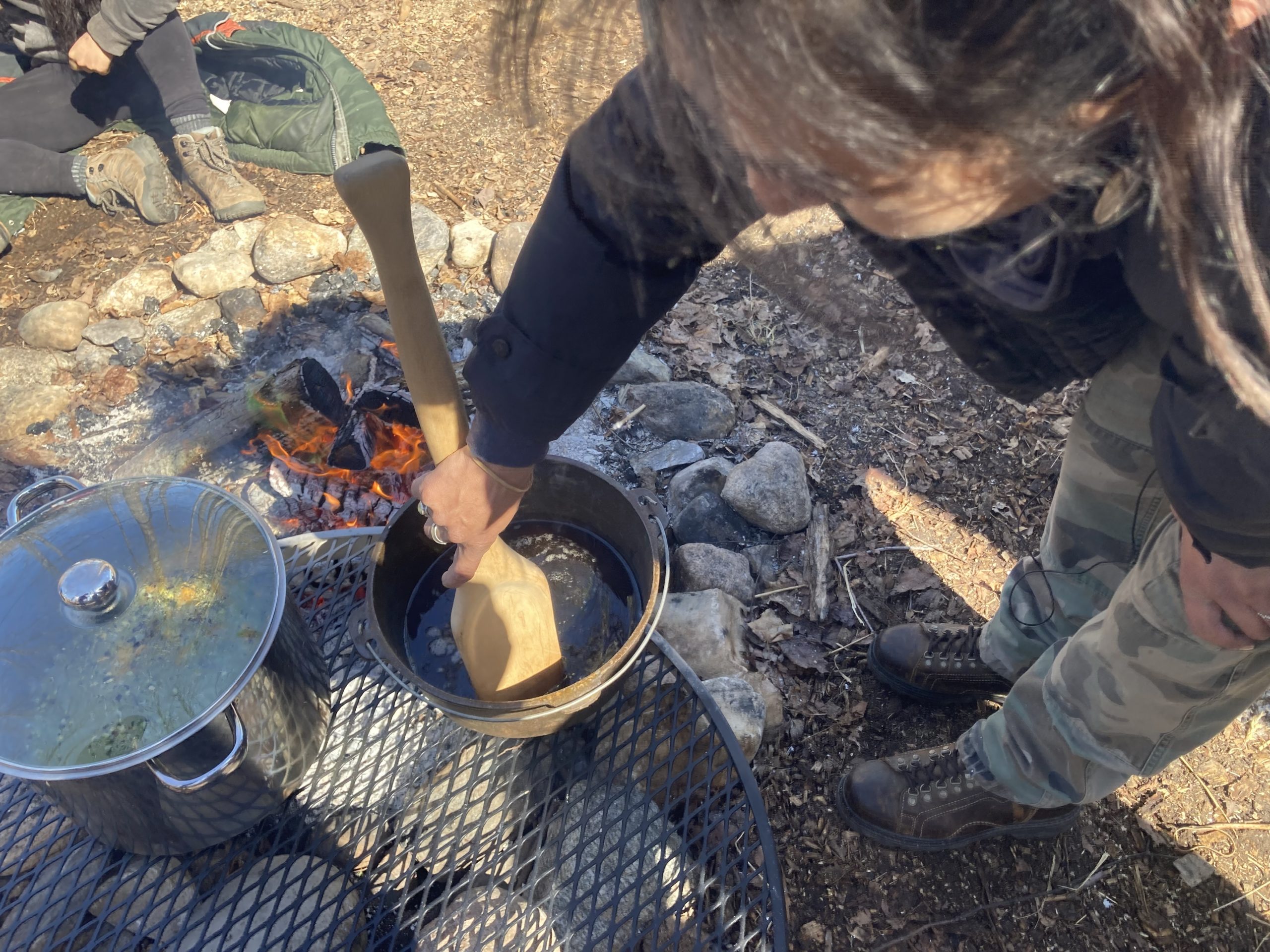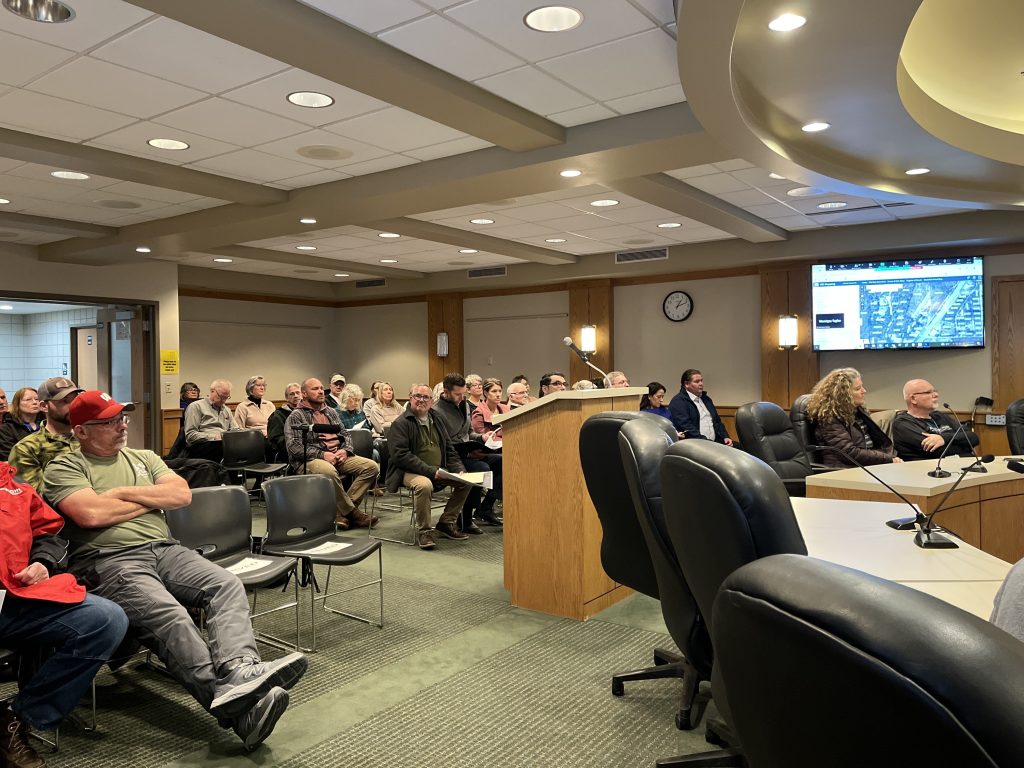Podcast: Play in new window | Download | Embed
An inter-tribal council from Native Nations, mostly in Wisconsin, wants to create a substance use recovery center for young people in an area that’s considered a treatment desert for recovery facilities.
As WXPR’s Hannah Davis-Reid reports, they’ve hit a roadblock.
The Great Lakes Inter-Tribal Council (GLITC) is a non-profit organization that serves Native people in Wisconsin, Michigan, and Minnesota.
Over the past 20 years, they’ve worked on plans for a recovery and wellness center for young people.
The 36-bed facility is designed to treat and support Indigenous youth with culturally relevant services and amenities.
It would also serve non-Native youth.
However, the local town board of Cassian doesn’t want the center in their area and has been fighting against it for the last year.
Last week, the Oneida County Planning and Zoning Committee denied the permits to build the center.
The committee cited a concern of a drop in nearby property values and that GLITC could place the property in a sovereign trust as its reasoning for rejecting the permit.
This is President Shannon Holsey of the Stockbridge-Munsee Band of Mohicans, one of GLITC’s member tribes.
“You have to remember, sovereign immunity is ‘of the sovereign’, you’re talking about 12 tribal nations that are involved in this project. So there wouldn’t even be continuity to the involvement of whose sovereign immunity it was.”
GLITC does plan to continue with the project, saying it’s too important to not reassess and move forward on.

Tera John stirs a pot of maple syrup outside the Grand Traverse Band’s sugar shack in Peshawbestown. (Photo: Ellie Katz / IPR News)
This time of year is typically maple syrup season in northern Michigan when daytime highs get above freezing while nights stay cold.
But this year’s mild winter meant that many people began tapping their trees unusually early in January and February.
The Grand Traverse Band of Ottawa and Chippewa Indians took the warmer weather as a sign to let their sugar maples rest.
Interlochen Public Radio environment reporter Ellie Katz has more, in the first of a two-part special feature.
Tera John is gathering kindling for a fire outside the Grand Traverse Band’s sugar shack in Peshawbestown. The sound of a woodpecker echoes through the woods.
“We listen for that guy to return to sugar bush. That woodpecker is saying those bugs underneath the bark are starting to wake up.”
John is a tribal member and works with the Grand Traverse Band’s agriculture department on restoring traditional foodways and food sovereignty.
She says the sound of woodpeckers is just one of many ecological signs that the trees are waking up again and their sap is starting to flow — that it’s time for sugar bush.
“We are coming back to this forest, this grove. These maples – we call him ininaatig. That’s our standing brother, our elder brother, the one who, like, gives you the side-eye if you’re not behaving at Thanksgiving dinner. That’s the maple for us.”

A gravity tube from last year’s sugarbush runs up through a grove in Peshawbestown, allowing taps from dozens of trees to run down to the sugar shack. (Photo: Ellie Katz / IPR News)
Tapping maple trees for sap, syrup and sugar is an old Anishinaabe tradition — one that John and the tribe are working to strengthen after generations of settlement made it harder to practice and pass down.
“The beginning of the year is sugar bush. When we report for sugar bush, we check in with our family, get the good gossip. We laugh together, argue … everything that families do.”
March is typically sugar bush season in northern Michigan, when daytime highs get above freezing while nights stay cold. But this year’s mild winter meant that many people began tapping their trees unusually early, in January and February.
John says she became concerned when signs to tap started coming early — things like the sound of woodpeckers and the appearance of baby skunks. She says the snowpack never came all the way up to the trunks of the trees.
“That was a red flag for me. And I asked my elders about what to do and what to say. And I asked the trees, because they have not been respected or appropriately thanked or allowed to rest for quite a long time.”
With that input, she decided the band’s agriculture department would let the trees rest, then hopefully tap next year.
CJ Minzey, agriculture coordinator at Grand Traverse Band, says he was excited about the decision.
“The way Tera [John] explained it to me, was our tradition was we’d tap three years, and then give the fourth year a break. I was really pushing to get that going. … Because I think it’d be nice to give Mother Nature a break.”
They’re not alone in that choice.
Several other tribes, like the Sault Ste. Marie Tribe and the Saginaw Chippewa, are doing the same.
Tune into National Native News tomorrow for part two of Ellie Katz’s special feature
Get National Native News delivered to your inbox daily and stay up-to-date on the 2024 Native Vote. Sign up for our daily newsletter today.



